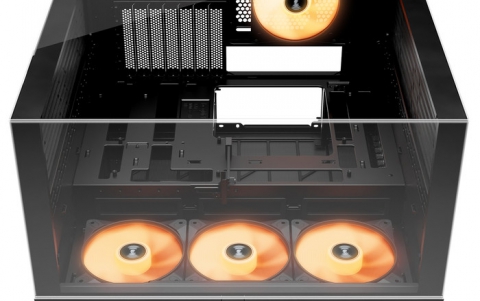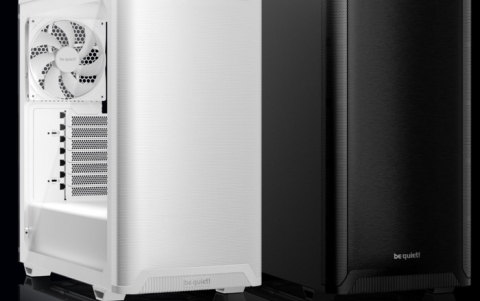
iODRA Takes Royalty Complaint to Commission
The International Optical Disc Replicators Association (iODRA) has lodged a formal complaint with the European Commission over the royalty rates charged by DVD patent holders.
In its submission to the Competition Directorate-General, the trade association cites three patent pools: the DVD6C, DVD3C and MPEG-LA licensing agencies.
Frank Fine, legal counsel to iODRA, commented: "We believe these patent pools have, between them, flouted just about every rule in the book." Guy Marriott, iODRA chairman, said that his organisation had launched the action at the end of June "with great reluctance", following the failure to secure a satisfactory outcome by other means.
iODRA alleges that the patent pools have not fulfilled commitments, made following competition reviews carried out by the EC and the US Department of Justice, to ensure that royalty structures would be "fair, reasonable and non-discriminatory".
While royalty rates have been reduced a number of times since the launch of DVD, ex factory prices have fallen to a much greater extent. However, the complaint is not simply that "replicators are getting significantly squeezed", as Marriott puts it. He explained: "We believe that there is differential pricing for royalties, which is inherently unfair."
Another allegation made by iODRA is that replicators are being charged for non-essential patents. During the EC and US competition reviews, the pools stated that they would engage independent experts to confirm that all the patents being licensed are essential to the manufacture of DVDs. However, requests from iODRA to see these expert reports have not been granted, and the association's own independent expert believes that there are non-essential patents in all three pools.
The timing of the complaint has been chosen to bring the issue to the attention of the competition authorities before patent pools are formed for HD DVD and Blu-ray, and royalty arrangements put in place. "With two new formats on the horizon, the time is right to put down some markers to say how these new technologies should be licensed," said Marriott.
Lawrence Horn of MPEG LA said "There are a number of iODRA members who have failed to meet their MPEG-2 intellectual property obligations, and their failure to do so is unfair both to those DVD disc replicators who are meeting their MPEG-2 intellectual property obligations, as well as the patent holders who made MPEG-2, and thus replication of DVD discs which use MPEG-2, possible." He adds that MPEG LA welcomes those iODRA members who remain unlicensed to comply with their MPEG-2 intellectual property obligations as others have done. "MPEG LA continues to offer them the MPEG-2 Patent Portfolio License for that purpose."
With reference to the actual formal complaint, the official comment from Toshiba on behalf of the DVD6C organisation states that, "We have examined the complaint filed by iODRA with the EU Commission and believe that the allegations with respect to DVD6C's licensing program are meritless. The Commission previously reviewed the terms of the DVD6C licensing program and issued a comfort letter to DVD6C approving those terms. DVD6C's licensing program has always been and remains in full compliance with EU competition law."
Source: One to One
Frank Fine, legal counsel to iODRA, commented: "We believe these patent pools have, between them, flouted just about every rule in the book." Guy Marriott, iODRA chairman, said that his organisation had launched the action at the end of June "with great reluctance", following the failure to secure a satisfactory outcome by other means.
iODRA alleges that the patent pools have not fulfilled commitments, made following competition reviews carried out by the EC and the US Department of Justice, to ensure that royalty structures would be "fair, reasonable and non-discriminatory".
While royalty rates have been reduced a number of times since the launch of DVD, ex factory prices have fallen to a much greater extent. However, the complaint is not simply that "replicators are getting significantly squeezed", as Marriott puts it. He explained: "We believe that there is differential pricing for royalties, which is inherently unfair."
Another allegation made by iODRA is that replicators are being charged for non-essential patents. During the EC and US competition reviews, the pools stated that they would engage independent experts to confirm that all the patents being licensed are essential to the manufacture of DVDs. However, requests from iODRA to see these expert reports have not been granted, and the association's own independent expert believes that there are non-essential patents in all three pools.
The timing of the complaint has been chosen to bring the issue to the attention of the competition authorities before patent pools are formed for HD DVD and Blu-ray, and royalty arrangements put in place. "With two new formats on the horizon, the time is right to put down some markers to say how these new technologies should be licensed," said Marriott.
Lawrence Horn of MPEG LA said "There are a number of iODRA members who have failed to meet their MPEG-2 intellectual property obligations, and their failure to do so is unfair both to those DVD disc replicators who are meeting their MPEG-2 intellectual property obligations, as well as the patent holders who made MPEG-2, and thus replication of DVD discs which use MPEG-2, possible." He adds that MPEG LA welcomes those iODRA members who remain unlicensed to comply with their MPEG-2 intellectual property obligations as others have done. "MPEG LA continues to offer them the MPEG-2 Patent Portfolio License for that purpose."
With reference to the actual formal complaint, the official comment from Toshiba on behalf of the DVD6C organisation states that, "We have examined the complaint filed by iODRA with the EU Commission and believe that the allegations with respect to DVD6C's licensing program are meritless. The Commission previously reviewed the terms of the DVD6C licensing program and issued a comfort letter to DVD6C approving those terms. DVD6C's licensing program has always been and remains in full compliance with EU competition law."
Source: One to One













